GEN Z
[To view the list of my other drama companion pieces (with links to them), check : HERE.]
SOLAR TERMS AND TRADITIONAL CHINESE AGRICULTURAL CALENDAR
The drama opens on a mention of the Awakening of the insects Solar term period :
Jingzhe was March 26 this year. Was thinking they could have released it then to satisfy the ZLS fandom. Anyway, here's the info :
"China's 24 solar terms: Jingzhe, Awakening of Insects
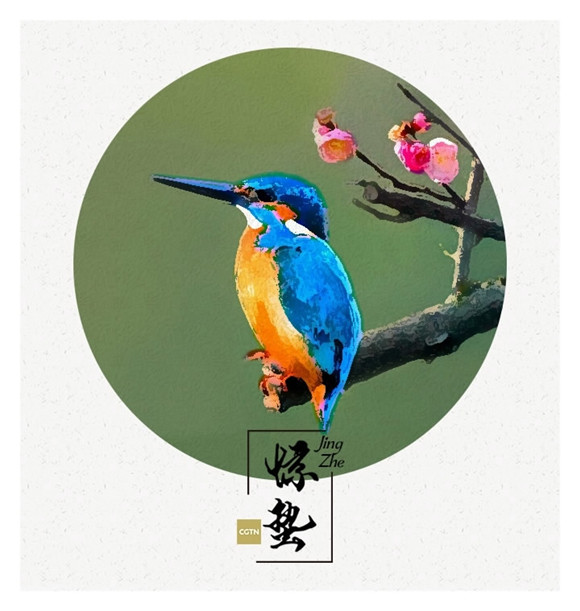
Jingzhe {惊蛰], or Awakening of Insects, is the third of China's 24 solar terms. It means that the warmer weather wakes up the animals hibernating in the soil.
Once upon a time, insects hid in the soil in winter without drinking or eating, which is called "zhe" in Chinese, meaning hibernation. When it comes to the day of Jingzhe, thunder wakes up the hibernating animals, called "Jing," meaning "wake up in a panic". In fact, insects can not hear the thunder, animals wake up because the weather is warming up and they are ending their hibernation.
Eating pear is a custom during Jingzhe. Pears can be eaten raw, steamed, juiced or boiled in water. Because the weather is dry during this time, eating pears can be hydrating and relieve a dry throat.
In ancient China, when there were more kinds of creatures, some infectious diseases did not have special medicine. On the day of Jingzhe, the time when all bugs wake up, eating pears is also a way to remind everyone to be careful.
In Chinese, the homophone of "pear" is "Li," which means "away from". It is said that eating pears can keep pests away from crops, which can ensure a good harvest for the whole year.
Still in Chinese, "pear" and "plow" pronounce the same, which means that crops can start to be planted. The Chinese people have attached great importance to Jingzhe since ancient times, and it is considered to be the beginning of the spring farming season."
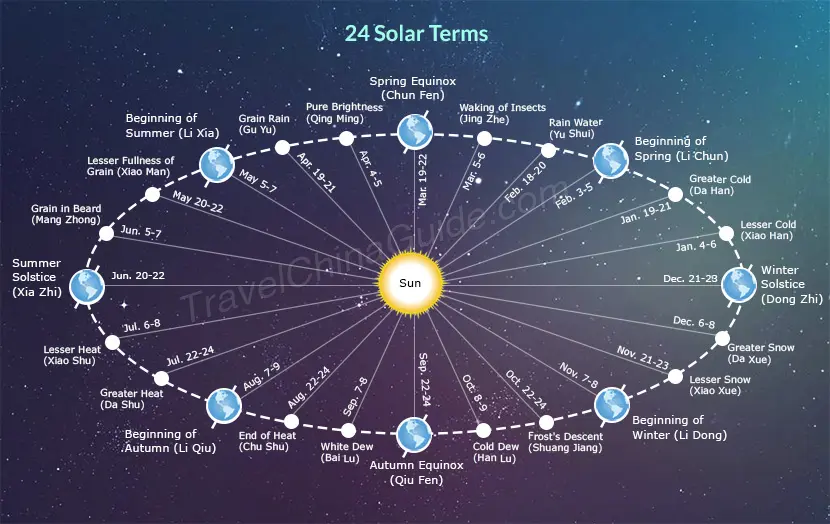
"The solar terms are the seasonal division points on the Chinese lunar calendar. In the past, Chinese people used the system to schedule their agricultural activities or alter their diet at various times of the year. Today, lots of traditions and customs regarding the 24 solar terms, such as eating special foods, are still popular in the country.
In 2016, China's 24 solar terms were inscribed on UNESCO's Representative List of the Intangible Cultural Heritage of Humanity."
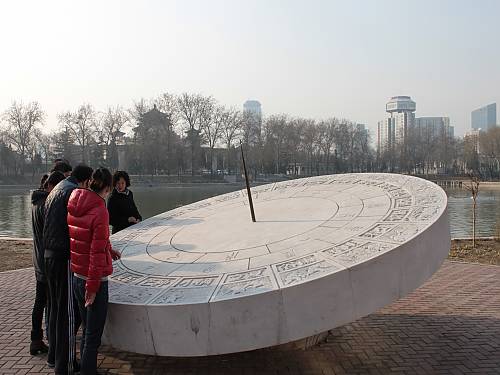
24 Solar Terms in 2023
Solar Terms | Date | Meaning |
|---|---|---|
| Lesser Cold (Xiao Han) | Jan. 5th | It is rather cold |
| Greater Cold (Da Han) | Jan. 20th | The coldest moment of a year |
| The Beginning of Spring (Li Chun) | Feb. 4th | Spring begins |
| Rain Water (Yu Shui) | Feb. 19th | It begins to rain |
| The Waking of Insects (Jing Zhe) | Mar. 6th | Hibernating animals come to sense |
| The Spring Equinox (Chun Fen) | Mar. 21st | Day and night are equally long |
| Pure Brightness (Qing Ming) | Apr. 5th | It is warm and bright |
| Grain Rain (Gu Yu) | Apr. 20th | Rainfall is helpful to grain |
| The Beginning of Summer (Li Xia) | May 6th | Summer begins |
| Lesser Fullness of Grain (Xiao Man) | May 21st | Kernels plump |
| Grain in Beard (Mang Zhong) also known as Grain in Ear | Jun. 6th | Wheat grows ripe |
| The Summer Solstice (Xia Zhi) | Jun. 21st | It has the longest daytime and the shortest night of the year |
| Lesser Heat (Xiao Shu) | Jul. 7th | Torridity comes |
| Greater Heat (Da Shu) | Jul. 23rd | The hottest moment of a year |
| The Beginning of Autumn (Li Qiu) | Aug. 8th | Autumn begins |
| The End of Heat (Chu Shu) | Aug. 23rd | Heat hides |
| White Dew (Bai Lu) | Sep. 8th | Dew curdles |
| The Autumn Equinox (Qiu Fen) | Sep. 23rd | The mid of autumn |
| Cold Dew (Han Lu) | Oct. 8th | Dew is very cold |
| Frost's Descent (Shuang Jiang) | Oct. 24th | Frost descends |
| The Beginning of Winter (Li Dong) | Nov. 8th | Winter begins |
| Lesser Snow (Xiao Xue) | Nov. 22nd | it begins to snow |
| Greater Snow (Da Xue) | Dec. 7th | It snows heavily |
| The Winter Solstice (Dong Zhi) | Dec. 22nd | The shortest daytime and the longest night of a year |
Now, May 14 is when in this calendar?
"Start of Summer (Chinese: 立夏), {Lixia]the 7th term of the year, begins on May 6 and ends on May 20 this year.
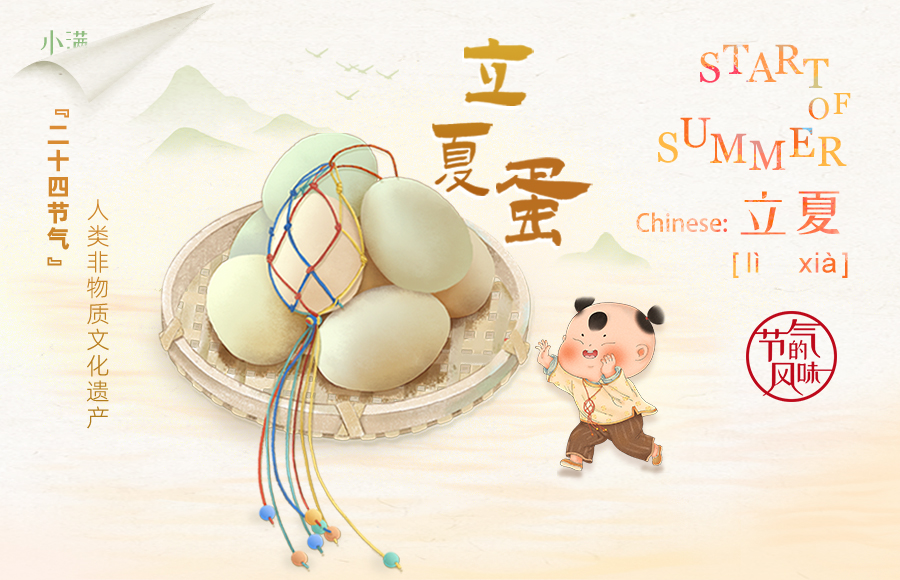 Start of Summer signals the transition of seasons. On this day, the sun's rays reach an angle of 45 degrees to the earth. The temperature will rise quickly during this period, yet in northern China weather remains mild, not tropical.
Start of Summer signals the transition of seasons. On this day, the sun's rays reach an angle of 45 degrees to the earth. The temperature will rise quickly during this period, yet in northern China weather remains mild, not tropical.
Here are five things to learn about the Start of Summer.
The term Start of Summer was originated at the end of the Warring States Period (239BC). Since it is a crucial time for the harvest of summer crops such as wheat and canola, ancient Chinese emperors in different dynasties attached great importance to the Start of Summer.
In the Zhou Dynasty (1050-221 BC), the emperor led his officials to stage a welcome rite for the Start of Summer and encouraged his residents to seize the key time to do farm work. It's said that most of the decorations were arranged in the color red, including the emperor and the officials' dress, the jade pendants, the horses and the flags, in order to show respect to the god of summer and pray for a good harvest.
The custom of weighing people at the Start of Summer originated from the Three Kingdoms Period (220-180) and prevails in South China today. It was believed this practice would bring health and good luck to the people weighted.
After lunch on the day of Start of Summer, people would suspend a stool or basket from a beam. The young and old took turns to get weighed while the person calculating the weight would offer good wishes and auspicious words. It is said those who were weighed would stay healthy in the hot summer and those who weren't would suffer illness.
In ancient China, people believed a round egg symbolized a happy life and eating eggs on the day of Start of Summer was a prayer for good health. They put leftover tea into boiled water together with eggs and the original "tea egg" was created. Later people improved cooking methods and added spices to the eggs to make them taste delicious. Today tea egg has become a traditional snack in China.
As an old Chinese saying goes "hanging an egg on children's chest can prevent them from getting summer diseases", parents will prepare boiled eggs and put them in a knitted bag before hanging them on their child's chest.
When at school, children gather together to play egg competitions by colliding each other's eggs in pairs and the one whose egg is not broken wins.
According to Chinese traditional medicine, Start of Summer is a key time to moisten the heart. When the weather grows hotter dampness and heat can affect human health. Food rich in vitamins and cool in nature is highly recommended. Vegetables, such as cucumber, tomato, watercress and celery and fruits that include watermelon, pear and strawberry are top recommendations."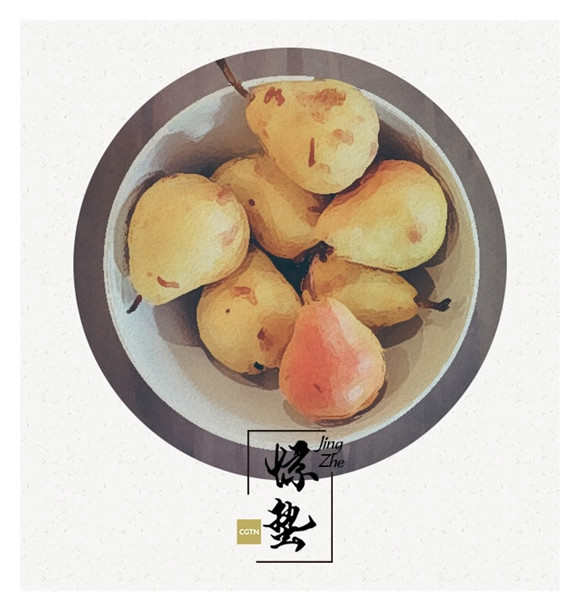 PS oh yes, for those not familiar with Chinese taboos, don't make a gift of pears to people, especially to your loved one, since that's ominous because of the "parting" (divorce) meaning.
PS oh yes, for those not familiar with Chinese taboos, don't make a gift of pears to people, especially to your loved one, since that's ominous because of the "parting" (divorce) meaning.
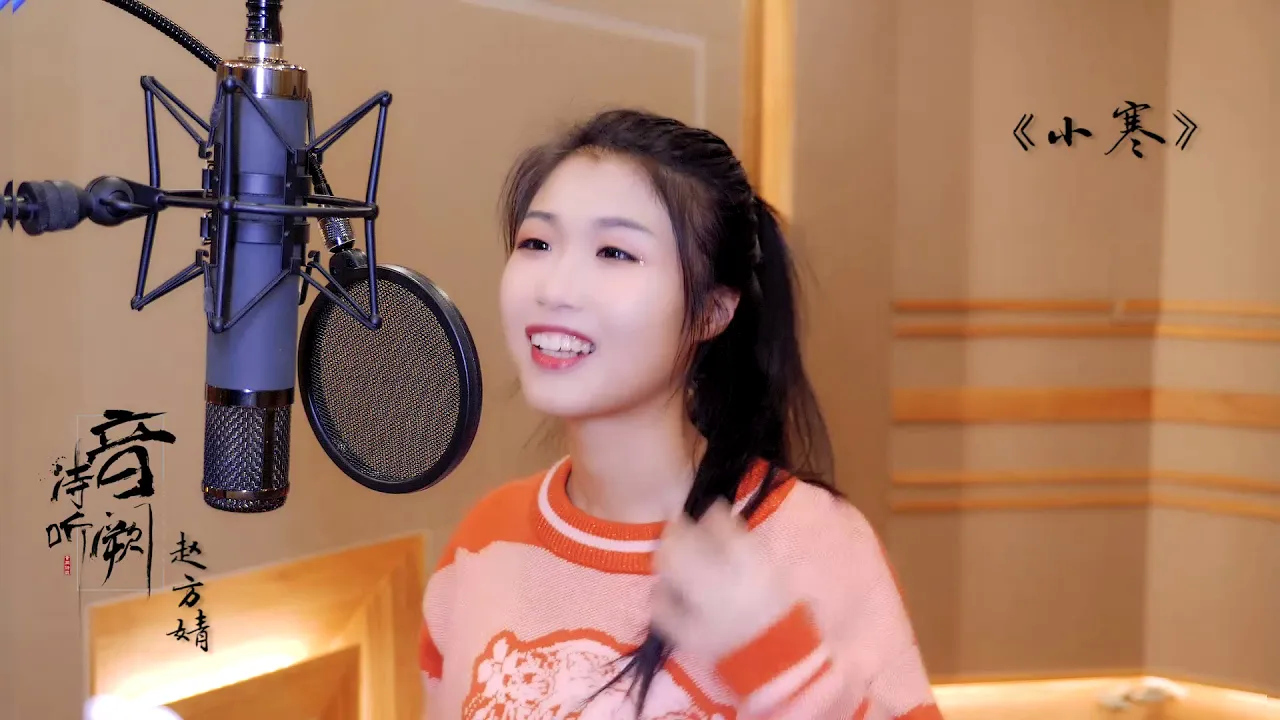 PPS This note about solar terms reminded me that a group of lady musicians of Chengdu composed some time ago zhongguofeng/Chinoiserie music for the 24 solar terms. They released an album in 2019 titled "Twenty-Four Solar Terms" of Yinque Poetry. Zhao Fangjing, member of the "Yinque Poetry Listening Music Club." 【音阙诗听】group (and solo singer too) included several songs. Among those, the "mangzhong" 芒种 (translated either as Grain in beard or Grain in ear, but sometimes faultily as Mango or Mangosteen) song became a hit. It was also famously performed, on stage for TV in 2021, by Zhao Lusi with her guzheng, singing and dancing here: https://youtu.be/VrubQPxdbpQ
PPS This note about solar terms reminded me that a group of lady musicians of Chengdu composed some time ago zhongguofeng/Chinoiserie music for the 24 solar terms. They released an album in 2019 titled "Twenty-Four Solar Terms" of Yinque Poetry. Zhao Fangjing, member of the "Yinque Poetry Listening Music Club." 【音阙诗听】group (and solo singer too) included several songs. Among those, the "mangzhong" 芒种 (translated either as Grain in beard or Grain in ear, but sometimes faultily as Mango or Mangosteen) song became a hit. It was also famously performed, on stage for TV in 2021, by Zhao Lusi with her guzheng, singing and dancing here: https://youtu.be/VrubQPxdbpQ

Now here's the Lixia -Start of Summer tune for your seasonal enjoyment :
https://www.youtube.com/watch?v=hNmyQz8WfcM sung by 昆玉 Kun Yu, other member of the group. (the lyrics to that song are in description of the video, but without pinyin or translation; nevertheless you can find link to pinyin and translation by clicking on her picture. )
(Infos sourced from CGTN and https://www.chinadaily.com.cn/a/202305/06/WS59bb9915a310d4d9ab7eb5e9_1.html, and travelchinaguide.com. For sources of info and picture of Zhao Fangjng: the Internet archive where you can listen to other of her songs : https://archive.org/details/zhao-fangjing-songs/Zhao+Fangjing.+Alley.mp3)
SooReneccs In 1 episode there was mentioned a 7 body locks- soul returning lock. I had translated it into pinyin but no result. I know it something to do with acupuncture point? Do you have any articles/links about that? Sorry if out of topic and thanks in advance.
Looking into it although not being a specialist of acupuncture or a therapist, I am not sure. Will rewatch if time allows, to find specific moment and context. This drama being a work of fiction there may be instances where real notions were changed to suit the imaginary (for instance, the zipping mouth part looked amusingly wuxia-inspired!). You may remember the delicious self-defense lesson taught by Zisheng to Shaoshang in last year's beautiful drama Love Like the Galaxy, where he put his Life Gate Mingmen in her hand? Well, this acupunct is not on the lower back but on the lower front part of the body between navel and pubic area, and has uses that are more related to healthy qi than to send enemy fainting... if you see what I mean. One could argue that since it is all gate to internal, the lower back also could be touched, but there's a bone in the way! So that specific "point" was to lure the young lady into a nice embrace, of course, lol
Will try to give more info and links about acupuncture and TCM soon, after my partial and superficial introduction to luni-solar Chinese calendar culture.
Anyone who wants to share knowledge is welcome here too, of course!
Acupuncture point Mingmen is correct, at back , GV 4/Governing Vessel/Du meridian line (important point as in front is Dantian, where all qigong exercises close with palms on it). Am doing TCM medical qigong for gastric problems and had indexed all acupuncture points in pinyin. If not mistaken , that 7 body locks was in episode 4. Thanks for your trouble.
SooReneccs Ooh yes, I did do qigong exercices at one point, until unrelated trouble made me unable to go on except looking at it from far away. I do remember that closing point. The routine was nice, I did feel in better shape then. Perhaps I'll take it up again, although somewhat lacking a suitable place to do it alone from memory, and people to do it with: nearest group is not close-by now, and getting there is complicated for me.
Maybe you could do a quick introduction about acupuncture, if you have time and like to share about it?
I thought the inflatable mannequin in the drama was fun, Found in pinterest and on google some posters and drawings about meridians and acupuncts.
@SooReneccs Btw, I re-watched episode 4 and did not find the mention of 7 body locks- soul returning lock. Was it in the discussion during the dinner prepared by Toutou, about the emergency acupuncture performed in the supermarket by Ren Tianzhe, where he explained that he "targeted her thenar muscle, her Nei Guan meridian, and He Gu meridian"? Apart from the Tai yin imbalance diagnosed for the girl with (at the time undetected) ecchyesis and the earlier discussion about yin yang in the class where Toutou was cat-napping, and later correction by Toutou of Rebecca's markings of acupuncts on the inflatable doll, there was no more technical acupuncture discussion?
Sorry, went back and re-watched, its epic 3, when Rebecca fainted @38.35. Mr.Ren then lifted her arm and pressed her armpit, if not mistaken pressed HT 1 /Heart 1, artery to heart(.forbidden to do acupuncture) He then did acupuncture to P8/Pericardium meridian/Laogong(where in qigong palm over palm at closing of qigong exercises, P8 overP8) These 2 points H1 and P8 ,if not mistaken is to reduce heart fire and calm the Shen/mind/spirit/body. Difficult as don’t know Mandarin, 1 word in pinyin is different in writing. That was the epi , when Toutou's friend, the nurse, came for the seminar and Ren said will teach them 1stt aid in TCM. Suppose to be in epi 4, they short-changed us!! I memorised Heart and Pericardium points as in TCM there is a “mother-child” i.e. stomach is child to mother, the heart, if child got problems, it will pull qi from mother, thus eventually there will be heart problems. And mother can cure child problems that the beauty of TCM!
Thanks for telling me where to look. :)
Acupuncture is very technical, and it's interesting to have a drama focusing on it like here. Production seems to have been careful gathering approval from specialists before airing, and of course there's the usual warning to not try do it wildly. As in other type of c-dramas revolving around an "industry", it also takes into account concerns that link the traditional culture to the present-day concerns, such as the schools and authorities that approve and support it or not, given the importance of modernizing.
TCM is a vast field of healing practices. Decried by modern science for some quacks using it for "snake oil" pushing and having non officially trained and approved grassroots "magic" healers, it has gained some recognition nonetheless for being a holistic approach that can help bring to attention overlooked conditions, introduce some interesting herbal compounds such as artemisine for study and developement in phamaceutical industries, and contribute to daily life wellness through its dietary and exercising routines (around the concept of QI, which is not only breathing and movement techniques) that can link with martial arts practice. In the PRC,the practice of traditional medicine is regulated with a ministry level governance, that also monitors the importance of TCM departments and prescriptions in public and private hospitals and clinics, the teaching methods and approval of students, and the sale of TCM medicine in pharmacies. Looking for more information about all this, I found some essays and pieces of news that were relevant to the evolution and present day importance of these traditions both in China and abroad.
The basis is of course the traditions that go back to legendary deities such as Shennong.
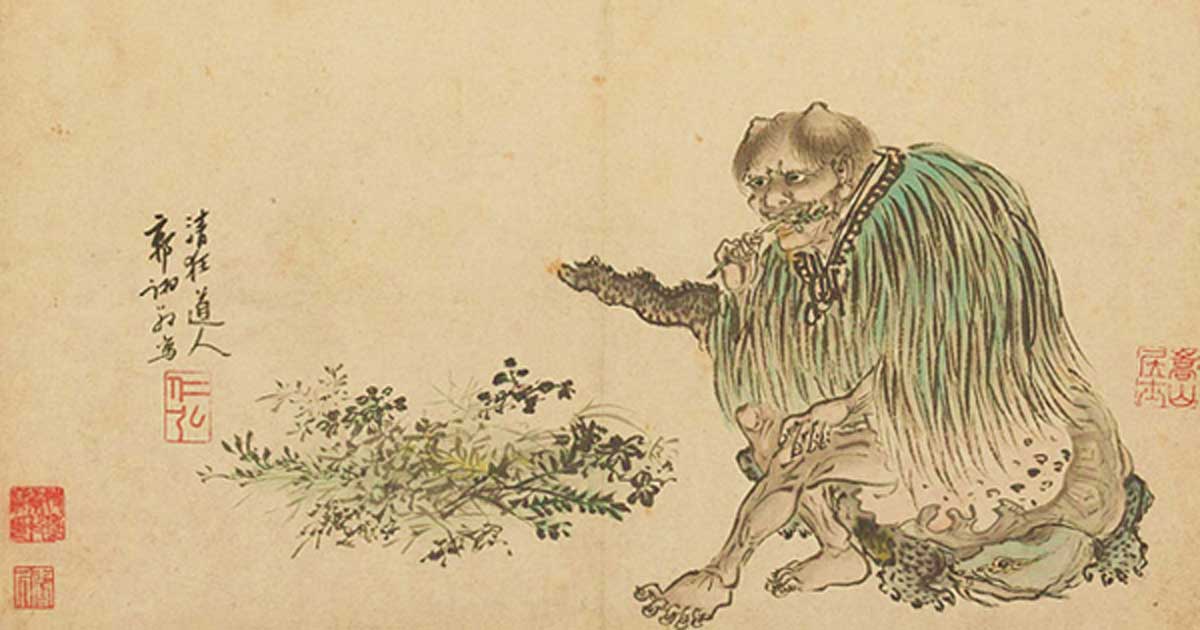
This painting depicts Shennong as he chews a branch, illustrating his role as healer. (Public domain: Guo Xu (1456–c.1529) in Wikipedia).
"Shennong (神農) is a deity credited with the creation of agriculture, the preservation of seeds, and irrigation, as well as the invention of the ax, well, and hoe. He is considered to be the father of traditional Chinese medicine, in part because of his detailed catalog containing 365 different botanical medicines.
Known for trying many of his own herbal cures, Shennong met an untimely death after ingesting a particularly poisonous plant. Also called Yán Dì (炎帝), he is the second of the “Three Kings,” a group of ancient, legendary emperor deities. He’s considered to be an ancestor of Huangdi (皇帝), the Yellow Emperor, perhaps even his father." (mythopedia)
He is also believed to have refined the therapeutic understanding of pulse measurements, the practice of moxibustion (the medicinal practice of burning mugwort on particular parts of the body), He is also known under different names such as the Emperor of fire Yan Di. As god of agriculture, the planting and harvest calendar linked to lunisolar terms is also derived from his precepts. "The Chinese lunisolar calendar is also called Agricultural Calendar [農曆; 农历; Nónglì; 'farming calendar'], or Yin Calendar [陰曆; 阴历; Yīnlì; 'yin calendar']), is based on the concept of Yin Yang and astronomical phenomena, [such] as movements of the sun, moon, Mercury, Venus, Mars, Jupiter and Saturn (known as the seven luminaries) " (Wikipedia) Whereas tradition has it that Shennong was born near the Hua Shan mountains north of Xi'an and lived from 2737 to 2697 BC , the earliest records of the The Shennong Herbal manual of medicinal herbs date back to around 200 AD while the agricultural calendar goes back to early Zhou dynasty (1050 BC – 771 BC). Much has evolved of course since those far gone mythical times that give TCM a tradition of roughly 5000 years.
More about him can be found in this article : https://www.ancient-origins.net/myths-legends/shennong-god-king-chinese-medicine-and-agriculture-007760
The philosopy of TCM is also based largely on Daoism, which introduced the yin and yang complementary concept: everything is linked on Earth, and can have a soul, should be respected. Today, it is not that far from ecological ideas that insist on the necessity of respecting the environment, avoid waste etc. In the drama, we watch the protagonists bowing to other figures and predecessors: there are, as in philosophy and religion, several "sects" that had their own practices and secrets. Today, though, there is less mystery than regulated practices ; TCM can be found in hospitals and clinics, and TCM medicine is often sold over-the-counter (the most widely used is probably the "ganmao yao" herbal tea for treating colds that is often featured in product placement moments in dramas, movies, and shows).
"In the country's 14th Five-Year Plan period (2021-2025), TCM was given priority to push forward the reform and development of the industry." Among those who supervise TCM at official level, Zhang Boli, an academician from the Chinese Academy of Engineering is also head of the Tianjin University of Traditional Chinese Medicine (TCM). Jiao Qisen, deputy of the Chinese Congress and chairman of TUS-Pharmaceutical Group, is lobbying for the protection of TCM medicine trademarks, and furthering more coordination between the National Health Commission, the National Medical Products Administration and the National Healthcare Security Administration, in order to provide policy support for the medical procurement of TCM-protected varieties.
Here are some informative links about acupuncture and meridians "for martial artists":
https://www.internalartsinternational.com/free/20-acupuncture-points-every-martial-artist-know-part-1/ ; https://www.internalartsinternational.com/free/20-acupuncture-points-every-martial-artist-know-part-2/
an article from Nature that describes and surveys TCM and the partnerships around the world in 2011 : https://www.nature.com/articles/480S82a#article-info
and a piece of news that showcases the present-day of TCM in 2023: https://www.globaltimes.cn/page/202302/1286332.shtml
Back again. While waiting for next episode (12) of Gen Z, I randomly watched a few episodes of In A Class Of Her Own 2020 costume drama, when I stumbled upon a scene depicting a demonstration of acupressure. The teacher was showing students the Shuitu point "to relieve sore throat, cough and shortness of breath" (ep4, 36:09).
Acupressure and acupuncture are of course related, but whereas, to stimulate vital energy qi for healing, acupuncture uses very thin needles (not pricking more than moskito bites, so even some trypanophobic people can accept them), acupressure only uses fingers and hands. They all target acu-points (named in link), which are located along "meridians" (chart in link), although their precise location in practice vary with individual persons, so "acupuncture points are located by therapists, through a combination of anatomical landmarks, palpation, and feedback from the patient".
Still, looking into that Shuitu point, I also found an interesting WHO handbook that charts the known and used "standardized" acupoints. Here is the link : https://apps.who.int/iris/bitstream/handle/10665/207716/9290611057_eng.pdf
The Shuitu acupoint at the neck is in the Wikipedia list and also described page 34, ST Shuǐ tū 水突 041 in that free WHO e-book.
@SooReneccs Checking back on episode 3, about your query regarding "Soul returning lock", I found the mention by Master Ren of the 還魂鎖 (trad) / 还魂锁(simpl) Huánhún suǒ = "resurrection lock", at 41:01, but like you, did not find it in the lists as an acupoint. "Lift(ing) the major tendons in front of the armpits with all your might" looks like a sort of chiropractic maneuver; I have no opinion on the validity as life saver.
What Master Ren did to make Rebecca come back from her faint was targeting her palm on an acupoint there, but I did'nt find the relevant one on the description of "Powerful Acupressure Points to nourish your spirit during challenging times" ( links to illustrated article), which I learned some of back in the days, and used with varying luck. (I remembered Lung 1 & 2 and Pericardium 8; the latter is also in the palm, btw)
One paper about emergency use of TCM mentions that " It has been stated in TCM that the immediate application of the triangle pyramid needle to puncture the Twelve Hand Jing Points can help remove the noxious blood from patients who suffer from coma and/or excessive phlegm production induced by the emergent wind stroke. It is well known that the Twelve Hand Jing Point is the golden recipe to rescue all kinds of emergencies such as sudden deaths, coma and cholera. With regard to the wind stoke-induced unconsciousness, the acupoints that are commonly applied are Renzhong (GV 26), Zhongchong (PC 9), Hegu (LI 4).
Acupuncture has been widely applied in China for thousands of years to improve the recovery of consciousness post coma or traumatic brain injuries. The acupoints commonly applied in first aid emergency to show the therapeutic efficacy are Renzhong (GV 26), Yongquan (K-1), Shixuan (EX-UE 11), Hegu (LI 4), and Neiguan (PC 6) "
So, Renzhong and Hegu look like they have traditionally a big importance. Another paper had a long article about the Conception (Ren) anf Governor (Du) Vessels.
Maybe some of these links will be of interest to your specialized interest, too ?
Recent Discussions
-
BL Drama Lovers Club36 seconds ago - iota
-
Last NON Asian Movie you watched? #22 minutes ago - onigen
-
What was the last song (non Asian) that you listened to? #28 minutes ago - onigen
-
Kpop Idol Official Content e.g Self-produced variety shows19 minutes ago - Ji-N
-
Add number of ratings on search page22 minutes ago - teddy
-
RATE the KPop singer above you......34 minutes ago - Alberico Gianetti
-
Thai Watch Challenge 202546 minutes ago - emi
Hottest Discussions
-
Last NON Asian Movie you watched? #22 minutes ago
-
The ALPHABET Game [drama /movie version]2 hours ago
-
♥️Count to 7000000♥️1 hour ago
-
Word Association #444 minutes ago
-
Drama Association Game43 minutes ago
-
Yeah, no, guess42 minutes ago






